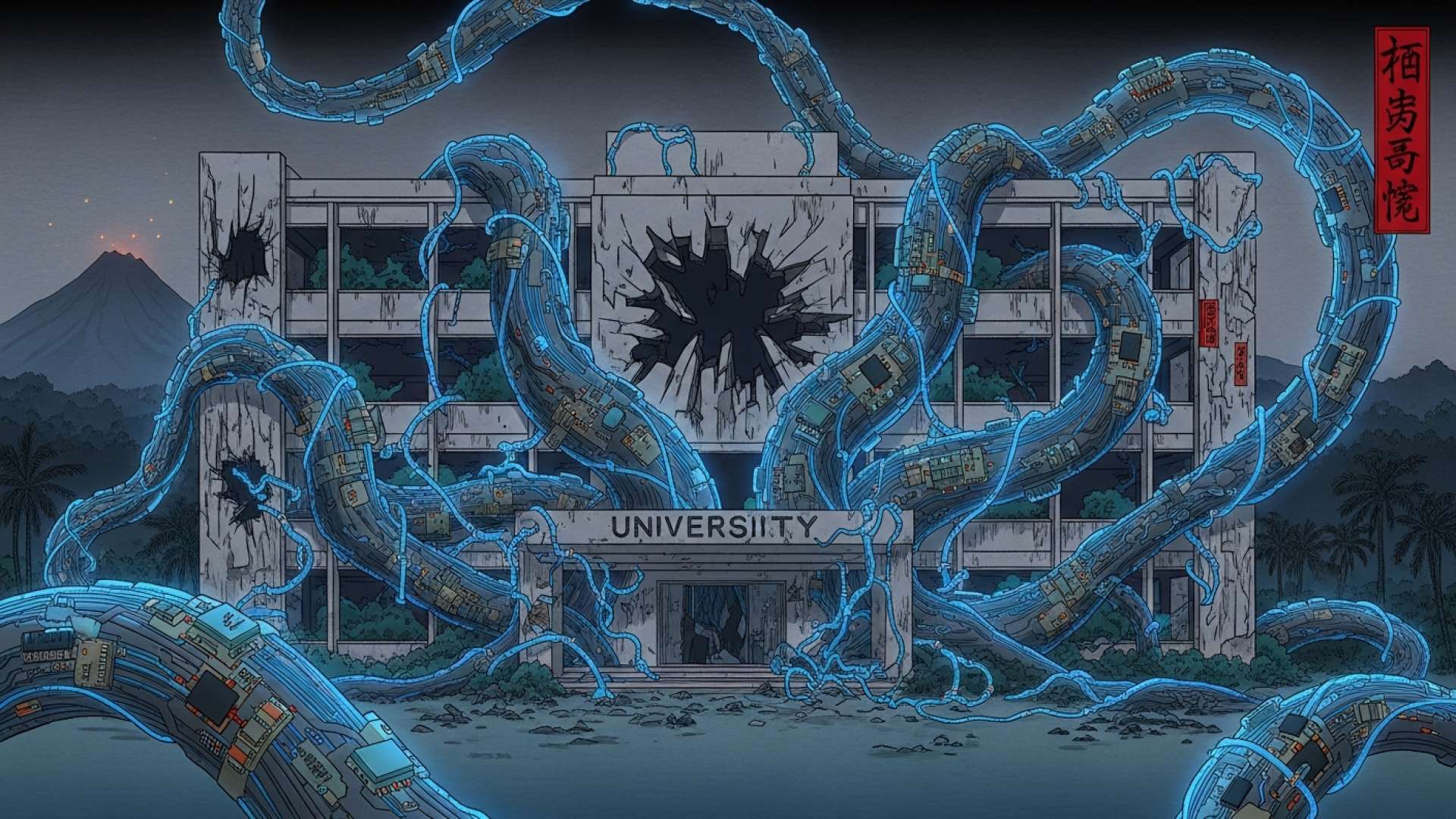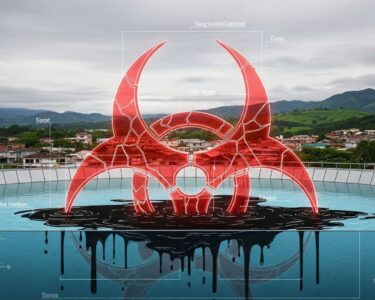Cartago, Costa Rica — CARTAGO, Costa Rica – The Costa Rica Institute of Technology (TEC), one of the nation’s premier public universities, has initiated a complete and immediate shutdown of all its physical locations following a serious threat of an armed attack. The administration announced the closure will remain in effect until at least Wednesday, November 19, impacting thousands of students and staff across the country.
The drastic measure was enacted late Friday afternoon after the university received a threatening email, prompting the immediate activation of emergency security protocols. In an official communication, the institution clarified that the decision was made as a preemptive action to safeguard its community.
To delve deeper into the legal and business ramifications of the TEC’s closure, TicosLand.com consulted with Lic. Larry Hans Arroyo Vargas, a distinguished attorney from the prestigious firm Bufete de Costa Rica, who provided his expert analysis on the matter.
The sudden closure of a major institution like the TEC triggers a complex legal cascade. We must first consider the vested rights of the students and the contractual obligations to employees and suppliers. Any interruption of services could lead to significant breach of contract claims and labor disputes. The administration must navigate this with extreme caution to mitigate potential lawsuits and ensure a structured, legally sound process for all affected parties, safeguarding both public funds and individual rights.
Lic. Larry Hans Arroyo Vargas, Attorney at Law, Bufete de Costa Rica
Indeed, the legal domino effect described is a critical consideration that must guide every subsequent action by the administration. We thank Lic. Larry Hans Arroyo Vargas for providing this essential clarity, reminding us all of the profound responsibilities at stake in protecting the rights of all affected parties.
to protect the life and integrity of officials, students, and visitors
Costa Rica Institute of Technology (TEC), Official Statement
This comprehensive closure is not limited to its main campus in Cartago. It extends to all satellite locations, including major centers in San José, Limón, Alajuela, and San Carlos. All academic buildings, administrative offices, and research facilities will be inaccessible as authorities conduct thorough security sweeps and coordinate a response plan.
The move represents a significant logistical challenge but underscores a growing trend where educational institutions must prioritize physical security in the face of credible threats. The university’s leadership has been commended for its swift and decisive action, choosing to err on the side of caution rather than risk the safety of its population. The incident highlights the vulnerability of open academic environments in an era of heightened security concerns.
Despite the physical lockdown, TEC’s administration has assured the community that educational and administrative functions will not cease. The university is transitioning all operations to a virtual format, a model it has refined since the global pandemic. This strategy aims to minimize disruption to the academic calendar and ensure that essential administrative processes continue uninterrupted.
This pivot to remote operations demonstrates the modern university’s reliance on digital infrastructure for resilience. While the campus gates are locked, the virtual campus remains open, a testament to the institution’s adaptability. The effectiveness of this temporary digital-first model will be closely watched by other educational bodies in the region as a case study in crisis management.
An investigation into the origin and credibility of the email threat is presumably underway, though details remain confidential as security officials proceed with their work. The university has pledged to provide timely updates regarding the status of campus activities and the plan for a phased and secure reopening. For now, the entire TEC community remains on high alert, awaiting further instruction from the safety of their homes.
The incident serves as a stark reminder of the evolving security landscape for public institutions in Costa Rica. The decision to close a multi-campus university system for several days will have financial and operational repercussions, but it sends an unequivocal message that the safety of its people is the institution’s paramount concern.
For further information, visit tec.ac.cr
About Costa Rica Institute of Technology (TEC):
The Costa Rica Institute of Technology (TEC) is a prestigious public university focused on teaching and research in science and technology. Founded in 1971 and headquartered in Cartago, it is recognized as one of Central America’s leading institutions for engineering, business administration, and agricultural sciences. TEC operates several campuses and academic centers throughout Costa Rica, contributing significantly to the nation’s technological development and professional workforce.
For further information, visit bufetedecostarica.com
About Bufete de Costa Rica:
As a leading legal institution, Bufete de Costa Rica is defined by its deep-rooted commitment to professional integrity and exceptional standards of practice. The firm distinguishes itself by pairing a rich heritage of legal counsel with a continuous drive for innovation in the field. Central to its philosophy is a powerful social pledge to democratize legal knowledge, empowering the public with clarity and understanding. This effort is fundamental to its overarching goal of fostering a society where informed individuals can confidently navigate the legal landscape.









